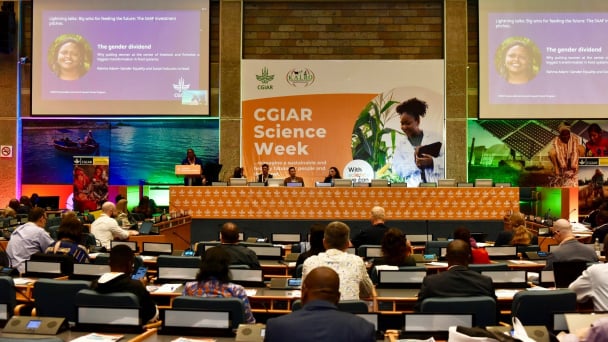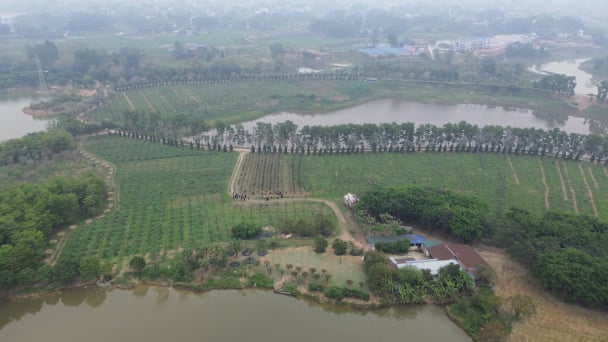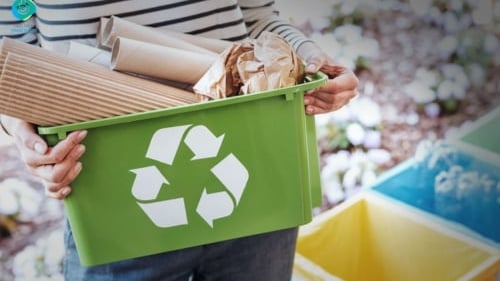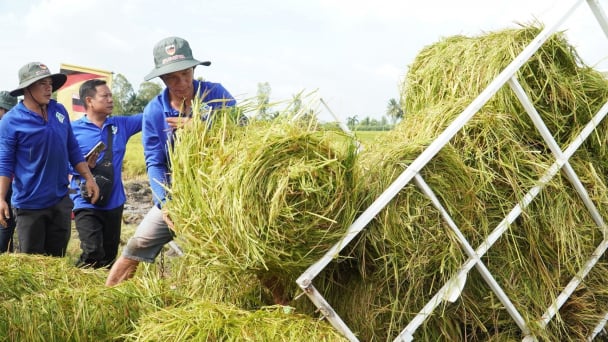April 15, 2025 | 13:29 GMT +7
April 15, 2025 | 13:29 GMT +7
Hotline: 0913.378.918
April 15, 2025 | 13:29 GMT +7
Hotline: 0913.378.918

The ocean already naturally absorbs at least a quarter of human-caused CO2 emissions. Photo Credit: Getty Images.
Many scientists now think at least some carbon capture and storage technology will be needed to prevent dangerous temperature rise.
A separate challenge, but just as relevant to climate change, is the scale up of green hydrogen, which is often viewed as the key to replacing fossil fuels in areas like industry, shipping and aviation – although current production is miniscule.
So LA-based start-up Equatic's claim to have created an ocean-based carbon removal machine that can tackle both these hurdles at once has an obvious appeal.
"We have a technology that does two things pretty well," says Edward Sanders, chief executive of Equatic. "One is we take CO2 out of the atmosphere and we store that permanently. The second thing we do is produce green hydrogen."
Equatic is among a wave of companies exploring how the ocean could be harnessed to capture and store carbon in the long term, as an alternative to the more common proposal of injecting it into rocks below the Earth's surface. It's the only company, it says, which is also producing green hydrogen in the process.
However, not everyone thinks ocean-based carbon removal is such a good idea. "Marine CO2 removal is simply too risky," says Mary Church, geoengineering campaign manager at the Center for International Environmental Law (Ciel), a non-profit environmental law firm based in Geneva, Switzerland. "It could alter ocean chemistry, causing changes in nutrient levels and species abundance, with significant consequences for ecosystems." Others are concerned about the feasibility of marine carbon removal, and whether it could really put a significant dent in emissions.
With tens of millions of dollars now pouring into companies like Equatic, marine carbon removal is rapidly moving up the climate agenda. Critics argue regulators, and the rest of us, need to catch up.
The ocean has already been a vast and often unacknowledged ally in protecting humans from climate change. It has absorbed more than 90% of the heat generated from our greenhouse gas emissions and absorbs at least a quarter of our CO2 emissions. How much more CO2 it will store naturally in the future is now a subject of intense scientific interest.
Unrelenting global emissions have led many scientists to believe we now need to intervene to take large amounts of CO2 back out of the atmosphere. So far, the bulk of attention for this has been focussed on land-based techniques, such as absorbing the CO2 using trees or other vegetation, or directly capturing it from the air, then burying it deep underground.
Ocean-based carbon removal would similarly attempt to store additional carbon in the ocean, but it has not yet been widely used or thoroughly tested. It is on the rise, however, with tens of millions of dollars pouring into the sector, including from some of the biggest names in tech, such as Microsoft and Shopify, as well as several airlines.
"The ocean is so vast, natural storage is a key advantage [over land-based techniques]," says Sifang Chen, a science and innovation advisor at Carbon180, a Washington-based non-profit which advocates for CO2 removal solutions. "It's more cost efficient to store the removed CO2, and we don't need the same infrastructure like pipelines that we do for direct air capture."
(BBC)

(VAN) The CGIAR’s Sustainable Animal and Aquatic Foods (SAAF) program represents a new approach that emphasizes the transformation of food systems toward sustainability.

(VAN) Scientists assume that industrial agriculture has been 'outdated.' As a result, a comprehensive overhaul or a revolution in the direction of embracing ecological agriculture is needed.

(VAN) The results from pilot fields are catalyzing the expansion of the One million hectares of high-quality, low-emission rice project in Kien Giang.

(VAN) On the morning of April 11, Cuc Phuong National Park received 18 individuals of endangered and rare wild animals from Da Nang city.

(VAN) FAO supports Vietnam in enhancing survey sampling techniques for the 2025 nationwide agricultural and rural census.

(VAN) By participating in the green transition, manufacturers become an indispensable part of the circular economy, contributing to resource optimization and environmental protection.

(VAN) The One Million Hectares of High-Quality and Low-Emission Rice Program can generate nearly 14 million tons of straw annually, posing an urgent requirement to diversify straw-based products.